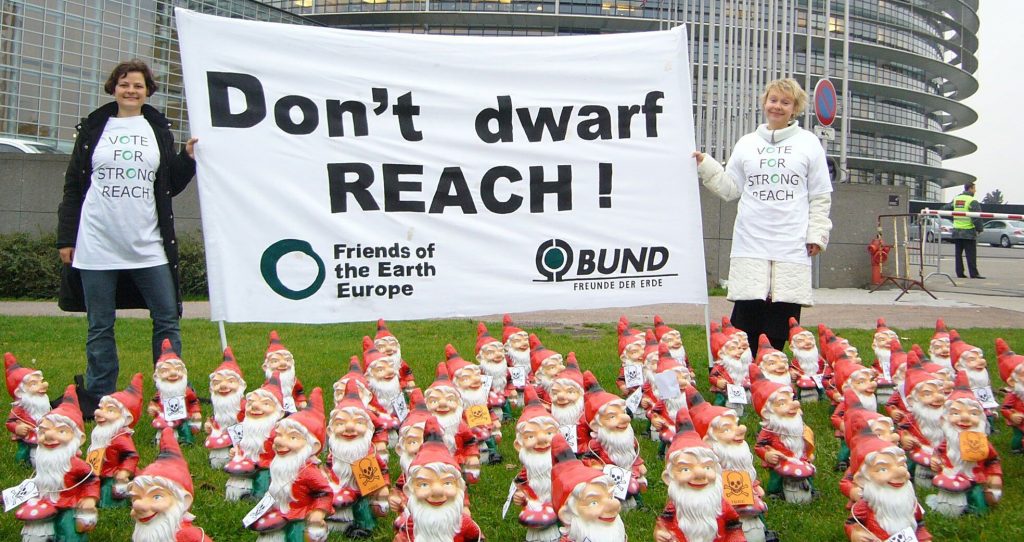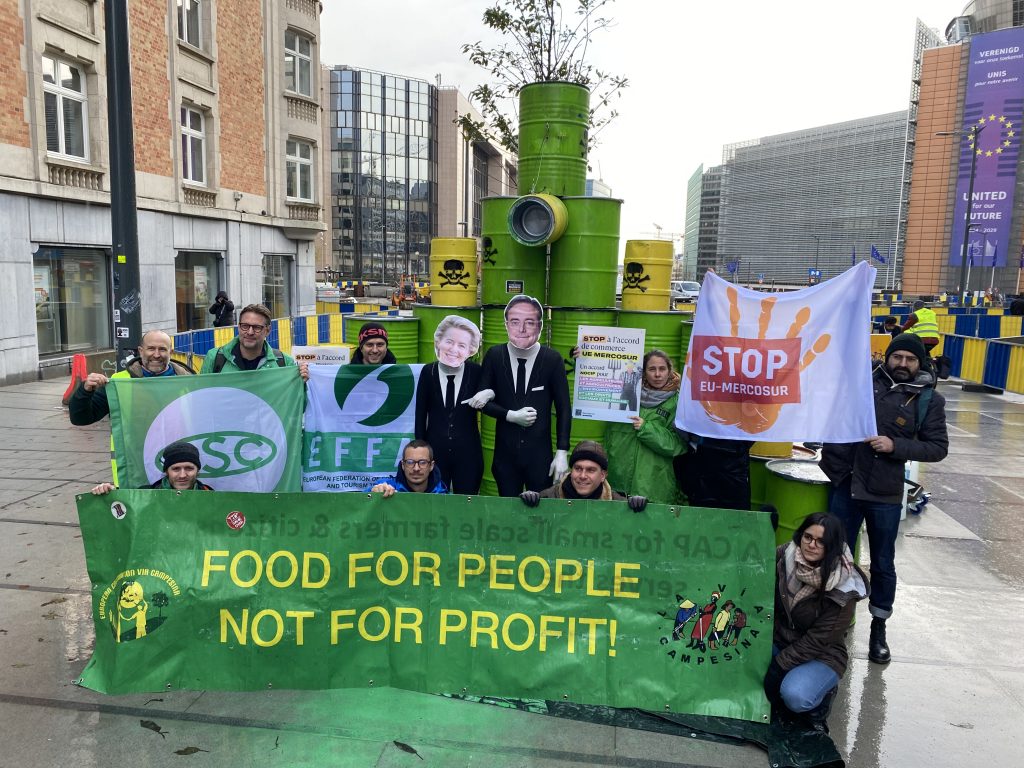Strasbourg: Friends of the Earth Europe displayed 100 garden gnomes in front of the European Parliament (EP) in Strasbourg urging strengthening of the EU’s chemicals reform. MEPs will vote on the proposal for REACH (Registration, Evaluation and Authorisation of Chemicals) on Thursday in the EP. Due to intense pressure from the European chemical industry, the draft legislation is under risk of being severely watered down. If the proposed amendments concerning the registration requirements were to be agreed upon, REACH could no longer guarantee an adequate level of protection for the humans and the environment. Friends of the Earth, joined by other environmental as well as health, consumer and women’s NGOs, urged the Parliamentarians not to dwarf REACH and reject all amendments that would reduce data requirements for substances produced between 1 and 10 tonnes per year per manufacturer.
Aleksandra Kordecka, Friends of the Earth chemicals campaigner, said: “After years of intense lobbying from the chemicals industry, there is a risk that REACH will become merely a vague reminder of its original form. 100,000 chemicals that are present in everyday products, such as computers, floorings or children’s toys, contain chemicals that have never been tested for their potentially hazardous properties. The adoption of industry-placed amendments would mean that the reform project would be a complete failure and around 88,000 chemicals would remain untested.”
Nevertheless, Friends of the Earth Europe said that there is a hope for rescuing REACH, if only partially, by introducing a system of mandatory substitution for dangerous chemicals. However, if REACH does not require producers to supply sufficient data to indicate the hazard of chemicals, it would be impossible for substitution to work in practice.
“It is high time the MEPs woke up. The chemical industry is worried about how dangerous their products really are and the threat of phase-out of some substances. The reason they oppose a strong REACH is that making hazard data public would mean that some of the most dangerous chemicals would have to be phased out. It lies in the Parliamentarians’ responsibility to protect human health and the environment by obliging the producers to provide at least minimum safety data”, added Kordecka.







